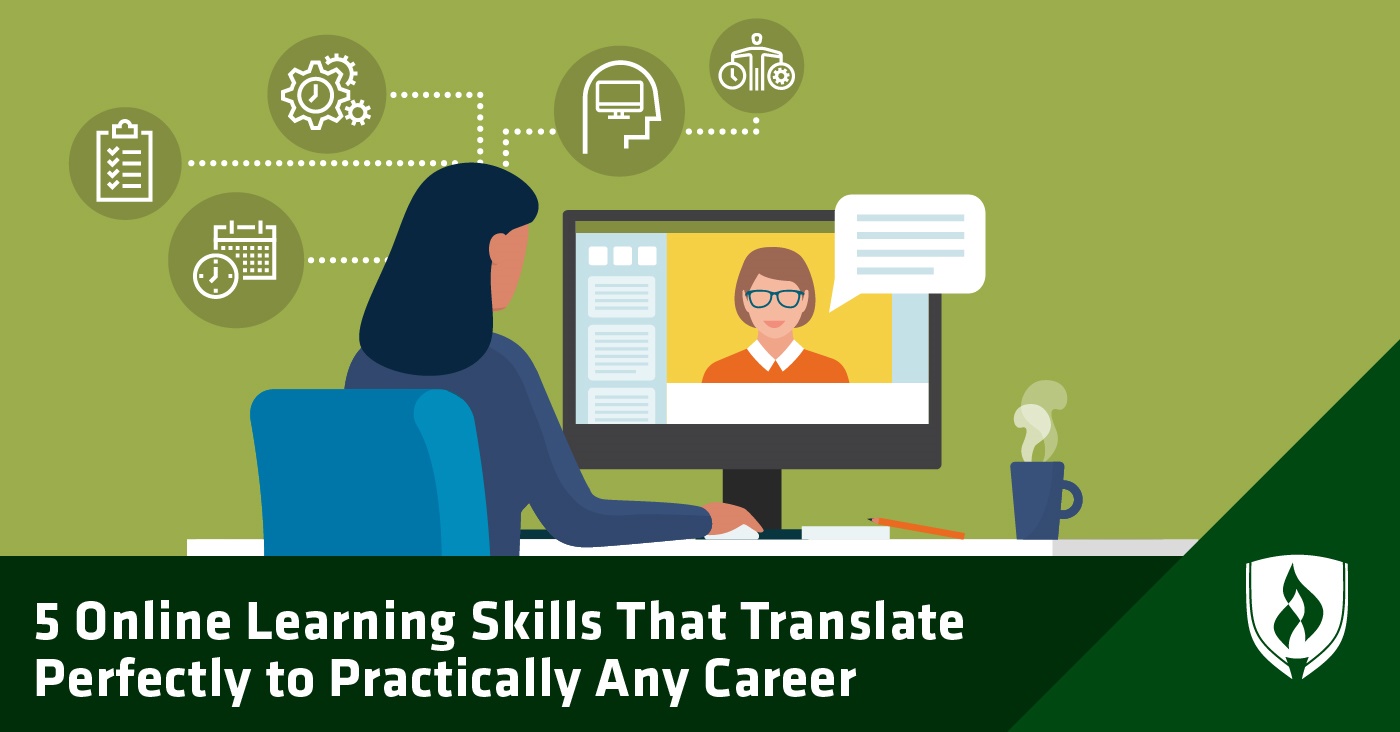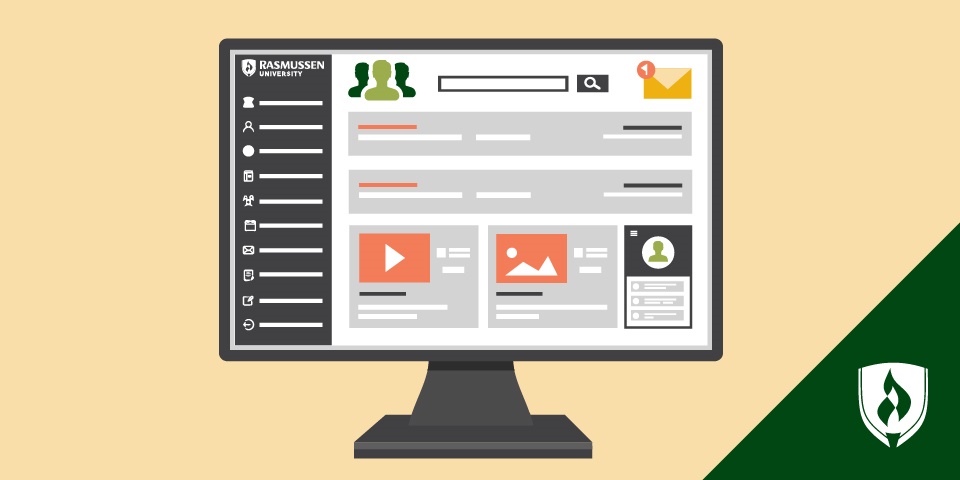5 Online Learning Skills That Translate Perfectly to Practically Any Career
By Hannah Meinke on 08/03/2020

Now more than ever, people are turning toward online education to keep them moving forward. While it’s not the same as being together in person, it’s clear that virtual courses have come a long way since their beginning. Not only do they allow students to gain technical know-how on their own terms, but they promote transferable skills that are valuable to employers.
If you're considering whether online education is right for you, you’re likely wondering how you might leverage it in your career. . After talking with former online students and current hiring managers, we’ve created a list of the online learning skills that you can expect to develop. Whether you’re a first-time student or are looking to transfer, these attributes will serve you well no matter your career path.
5 Online learning skills that benefit students beyond graduation
Just as with traditional schools, it’s important to check out the credentials of any online program. With the right program, educators and support services available, you’ll be set up well to develop the following online learning skills—all of which can help you both professionally and personally in the long run.
1. Time management
One of the great things about online learning is its flexibility. You don’t have to commute to school at the same time every week or worry about missing class when something comes up. With this freedom, however, comes the responsibility of managing your time more intentionally. It can be easy to put off school in place of other things, but as you get used to coordinating your own schedule, you’ll develop the skills of time management.
Even if you’re not the color-coordinated planner type, you know how to prioritize tasks. You don’t need to be told when to do things because you’ve thought ahead and you take advantage of every free afternoon. This requires both forethought and adaptability.
As you enter the workforce, you’ll find that these skills are crucial. Being able to manage your time means meeting deadlines independently and staying on track with short and long term goals. Employers look for this in all candidates—especially as they evaluate for leadership positions.
2. Digital literacy
Being able to intuitively navigate digital platforms is no longer an optional skill to have. Especially as more employers move fully online, a strong sense of digital literacy is key. Kenny Trinh, managing editor of Netbooknews, argues that this skill is not only more inherent to online graduates but proves indispensable in the job market.
“One of the most important things I look for in recruits is digital literacy,” he says. “This means I need people who are familiar with using online tools and can quickly learn to use the features that they provide.”
From video conferencing to screen sharing, enhanced presentations and much more, the tools that online students use to connect are often the same tools that many employers rely on. Learning how to navigate them now can help show that you’re ready to hit the ground running. Need to collaborate with a remote contractor? No problem. You know what instant messaging software to use and how to easily share and edit your projects.
3. Work-life balance
Knowing when to shut the computer is as important as having the discipline to keep working. Online students are more familiar than most with striking this balance. When home and school are effectively the same place, it can be tempting to let boundaries slide. But as you learn how to navigate school, family, self-care, and your other responsibilities, you’ll find out what works best for you. This can yield benefits both personally and professionally.
“Remember that employers are looking at the whole person for qualifications when hiring,” says Lynell Ross, founder and managing editor of Zivadream. “This includes emotional intelligence, perseverance, and experience in addition to the college or university—whether or not you received your degree online.”
Though it may seem counterintuitive, being entirely career-driven can be a red flag, predicting future burnout. A work-life balance can show employers that you know what you need and are capable of sustaining a long-term career.
4. Online communication
Being able to communicate effectively online is far more than knowing how to write a professional email. Unlike having a conversation in person, you have to account for a lack of tone and body language.
As an online student who does a lot of their communication virtually, this often means paying special attention to how words make a message feel and how extra clarity can round out context. Not only does this improve how you write emails but how you talk on the phone, video chat and communicate face to face.
Needless to say, these are all skills hugely valuable to employers. Being able to thoughtfully craft a message or comment is the foundation of good teamwork, leadership, work culture, and so much more.
5. Commitment
Online, on-campus, or hybrid, it takes commitment to complete your education. Though the material may be delivered in different ways, you work just as hard to learn it. You make sure your essays sound just right, you keep trying when the lectures don’t make sense right away, and you persevere until all the work is done. There isn’t a single employer who can’t appreciate that dedication. Carla Diaz, cofounder of Broadband Search, is one of them.
“I would consider online and in-person degrees equal,” she says. “As they both require a lot of self-discipline and hard work.”
No matter what method you choose, your commitment to finishing what you’ve started is a skill that will serve you well. Whether it’s a project or an employer, it doesn’t matter what other abilities you have if you don’t follow through when things get tough.
Develop life-long skills for your career
The challenges facing online students may be different than other students, but it’s precisely those challenges that lead to the unique strengths they’re equipped with. And as the workforce continues to rely more on virtual tools, these online learning skills will equip you well for whatever career you choose.
Want to learn more about online education? Check out our article, “Online by Design: 5 Things to Look for in a Great Online Education,” and take the next step toward the program that’s right for you.




